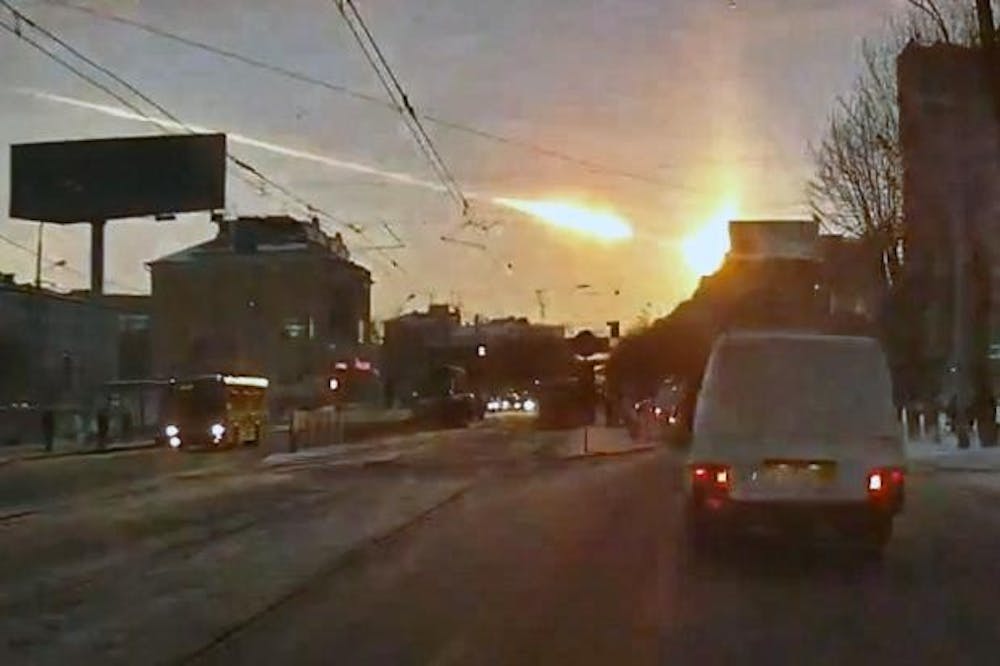The Russian Academy of Sciences called the meteor a bolide in a statement, meaning its precise physical makeup and size is unknown. Experts believe the object weighed about 10 tons and was about 32.8 feet (10 m) across. The object disintegrated about 20 to 30 miles (32.2 to 48.2 km) above Earth's surface at about 9:20 a.m. local time (2:20 a.m. EST), traveling at least 33,000 mph at the time, according to NBC News. The statement said that meteorites - fragments of the meteor's breakup - may have reached the ground.
The weekly science journal Nature reported that the meteor's explosion released "hundreds of kilotonnes" of energy, more than the recent North Korean nuclear weapon test. Much of this energy was directed at the city below due to the meteor's shallow angle of entry into Earth's atmosphere, causing the bulk of the damage. Margaret Campbell-Brown, an astronomer at the University of Western Ontario in London, Canada, told Nature, "It's lucky that there wasn't more damage" as a result of the shock wave.
Speculation began immediately that the meteor was related to the asteroid 2012 DA14, which will pass within 17,200 miles of the earth at about 2:24 p.m. EST Friday, but NASA confirmed that the two events were merely a coincidence. "The trajectory of the Russian meteorite was significantly different than the trajectory of the asteroid 2012 DA14, making it a completely unrelated object," NASA's website said.
Still, one can't help but notice the rarity of two such events occurring on the same day. Meteor strikes like the one in Russia happen just once every five years, experts say, the last one exploding over Sudan in 2008. Asteroids like 2012 DA14 fly by Earth only once every four decades according to NASA.
Discover more videos of the meteor explosion on YouTube, and tune in to NASA's live-streaming video of 2012 DA14's flyby throughout the day.





